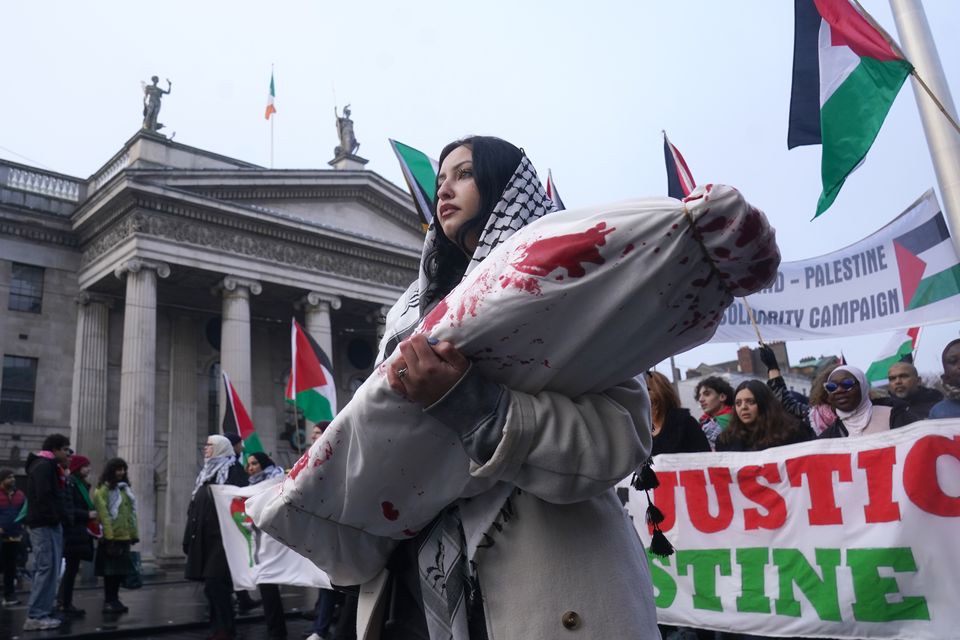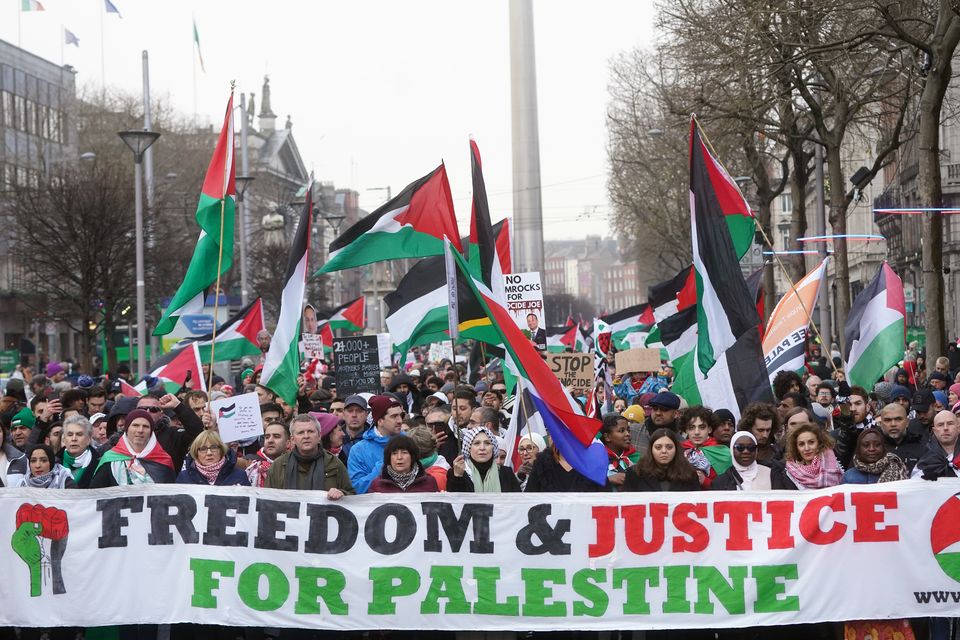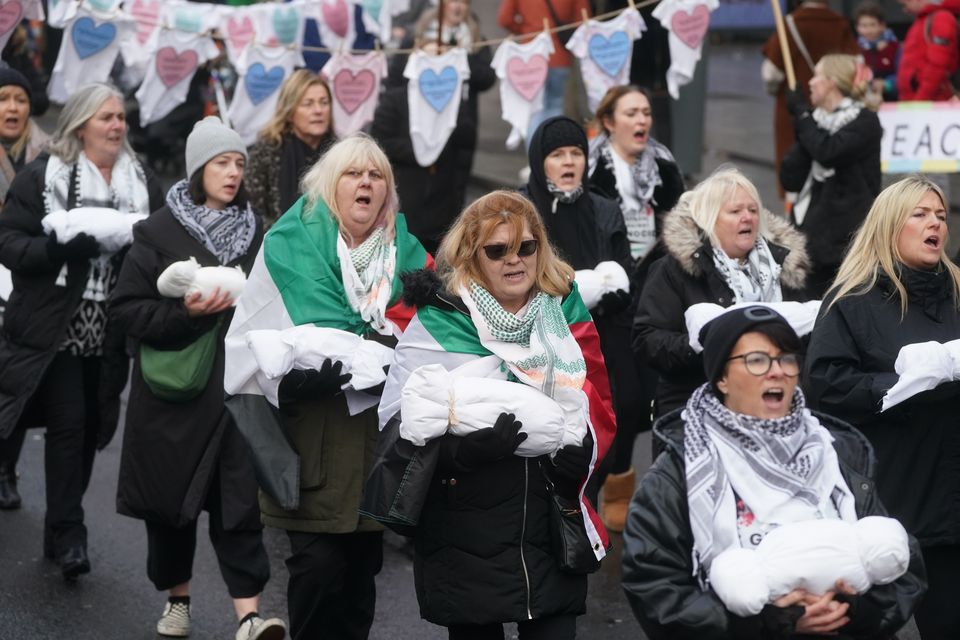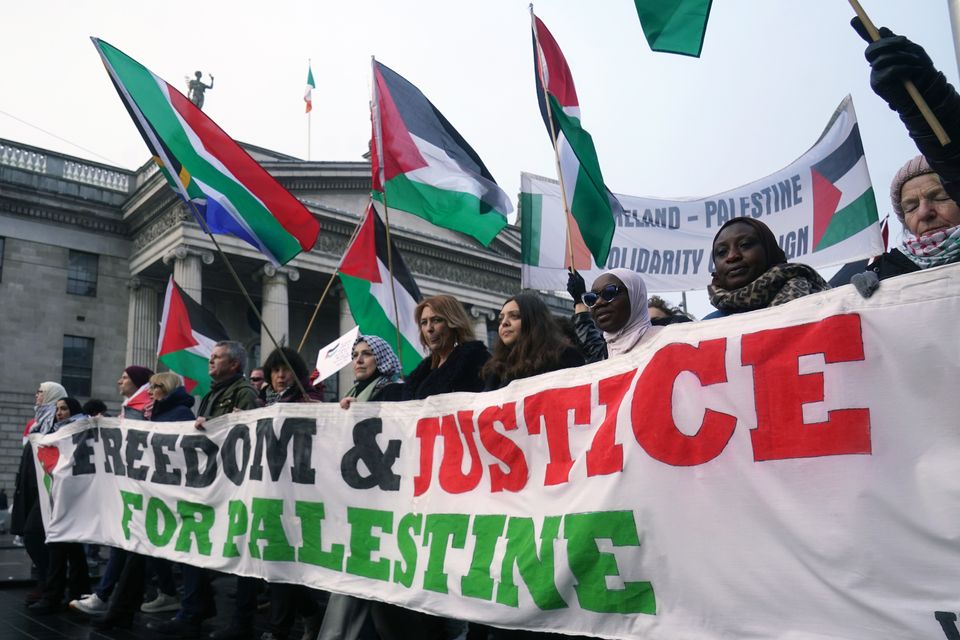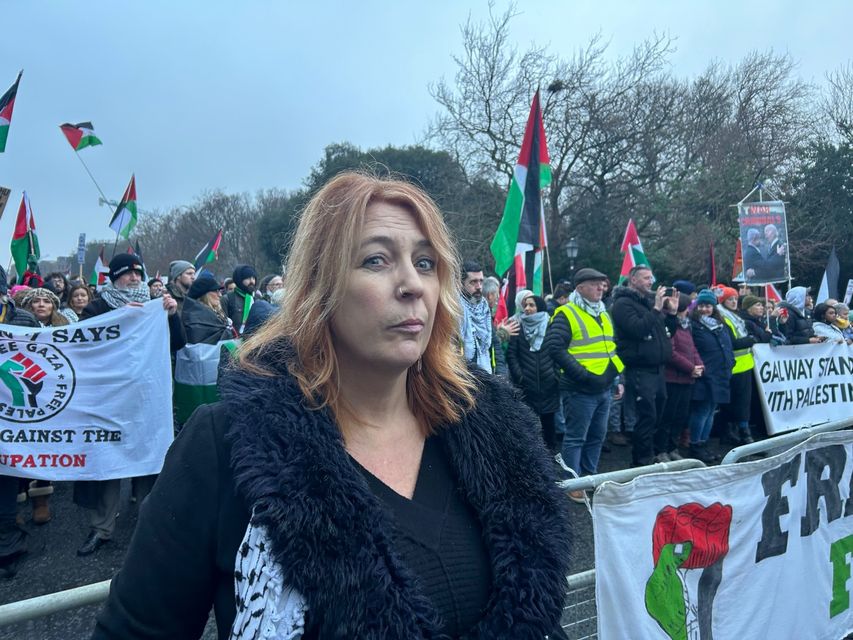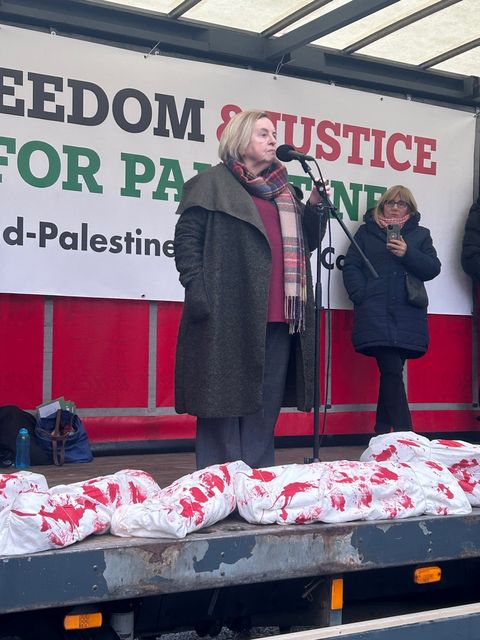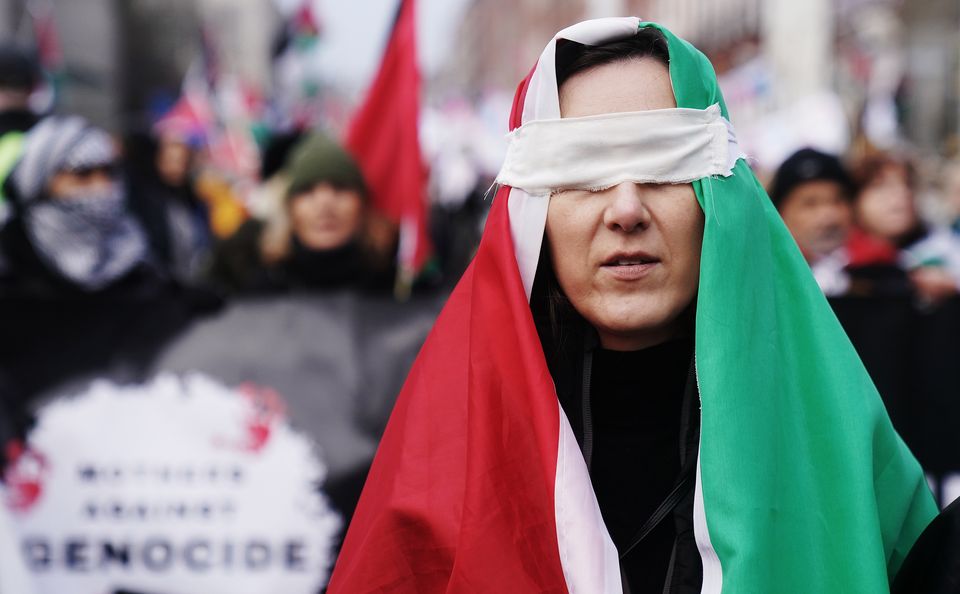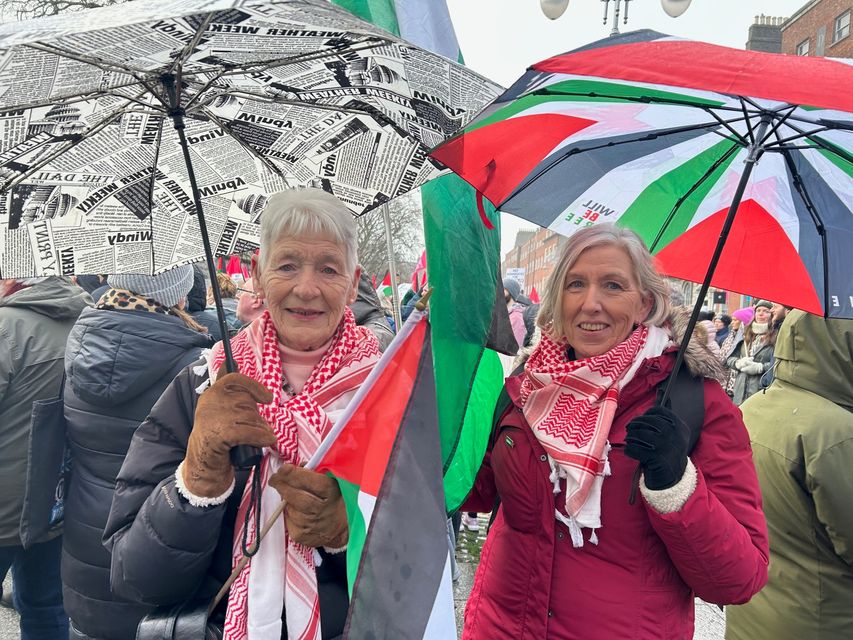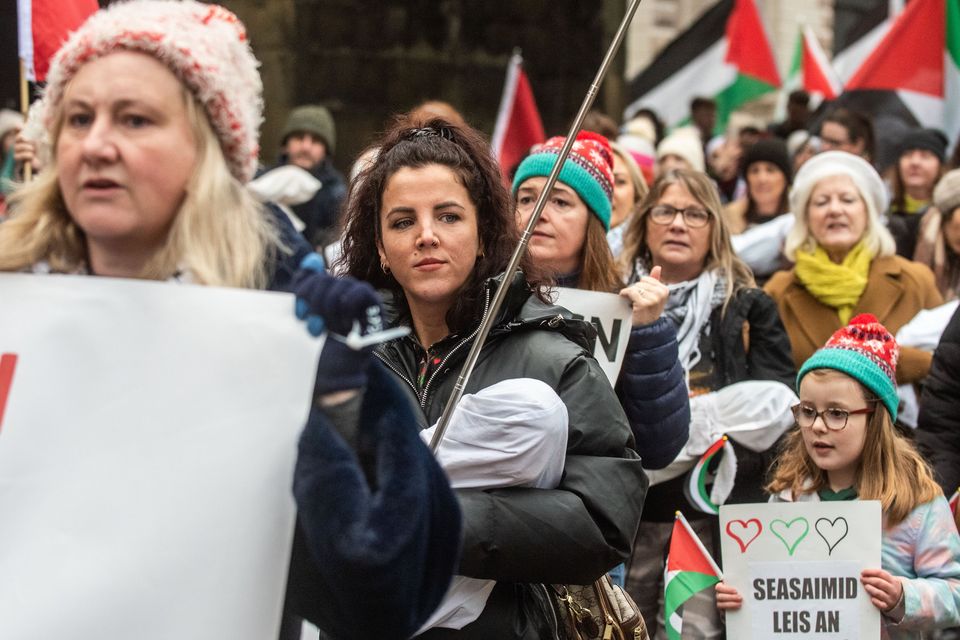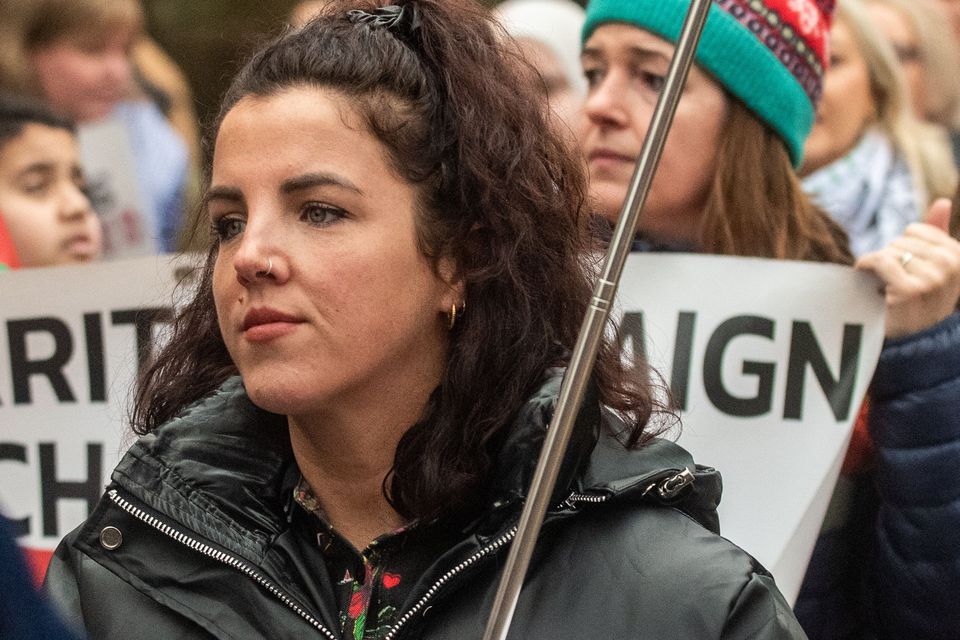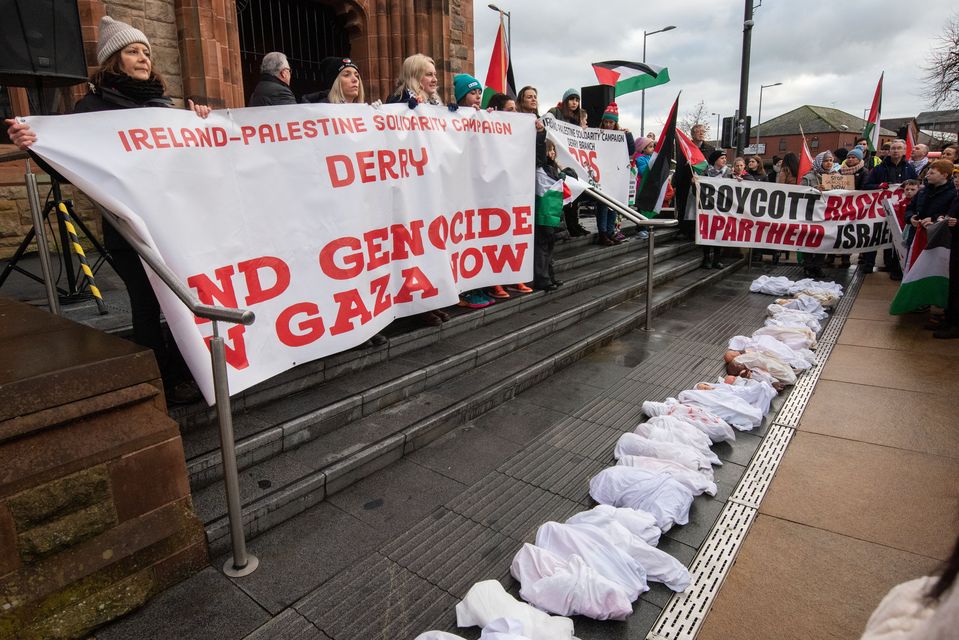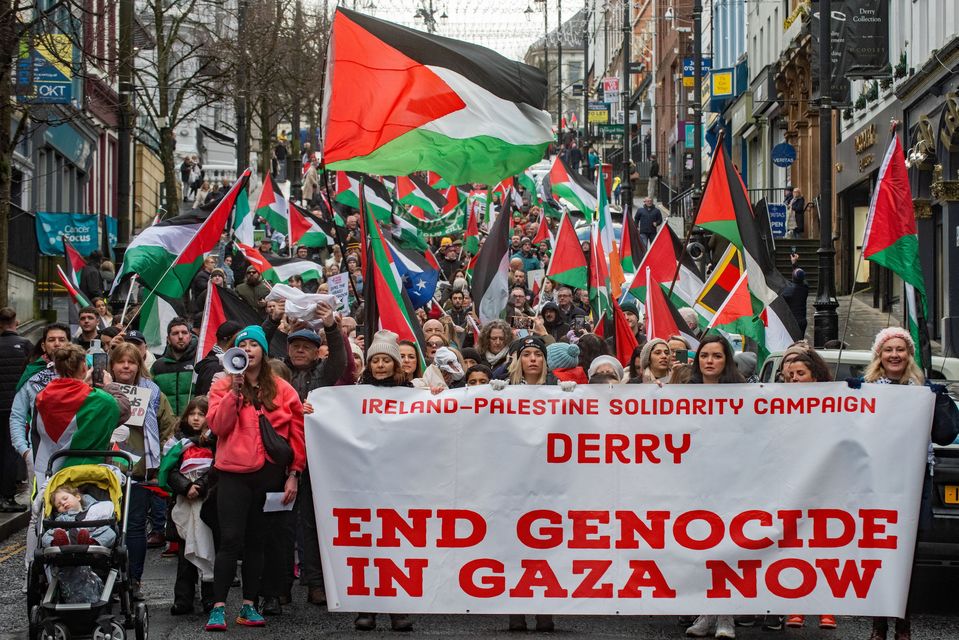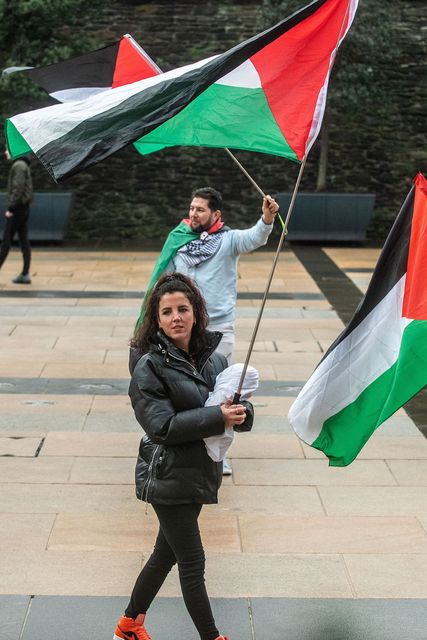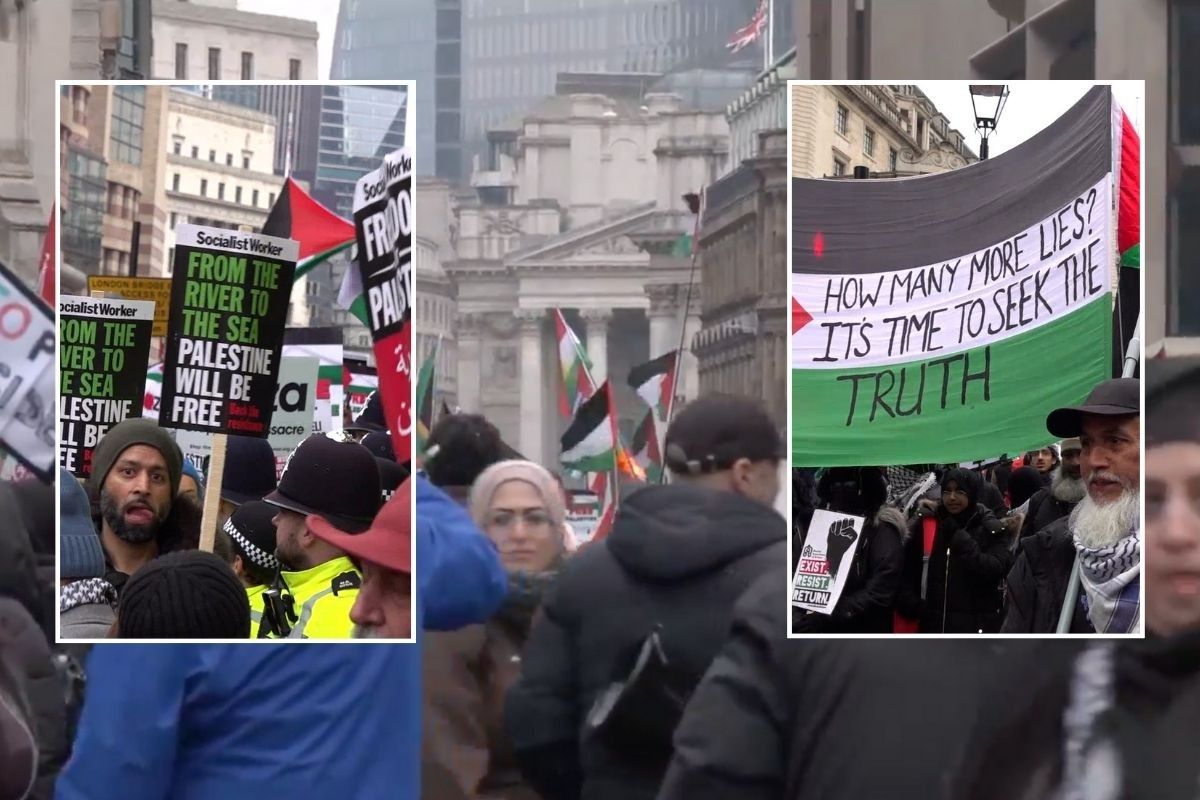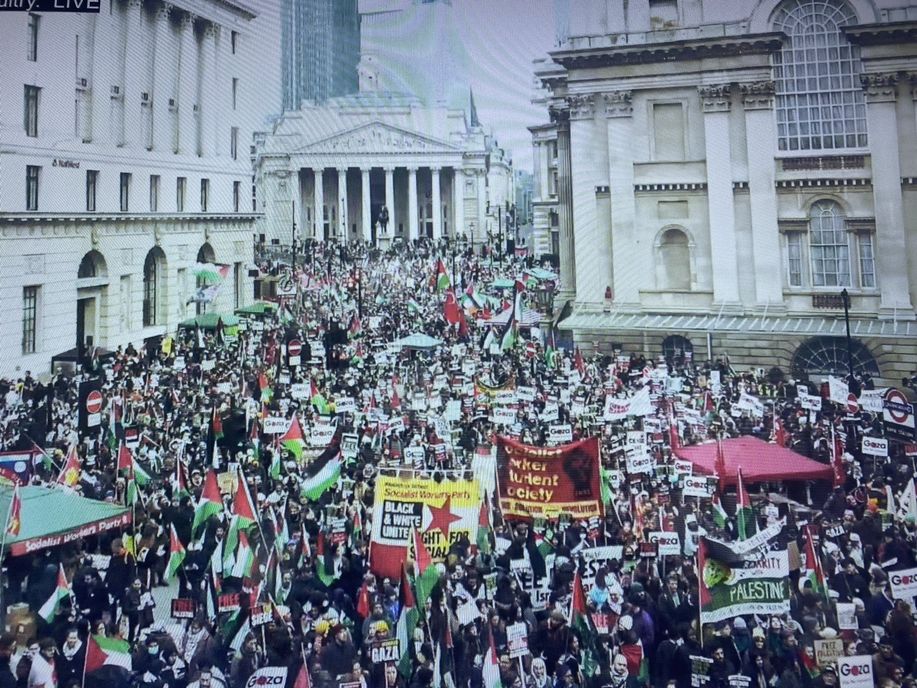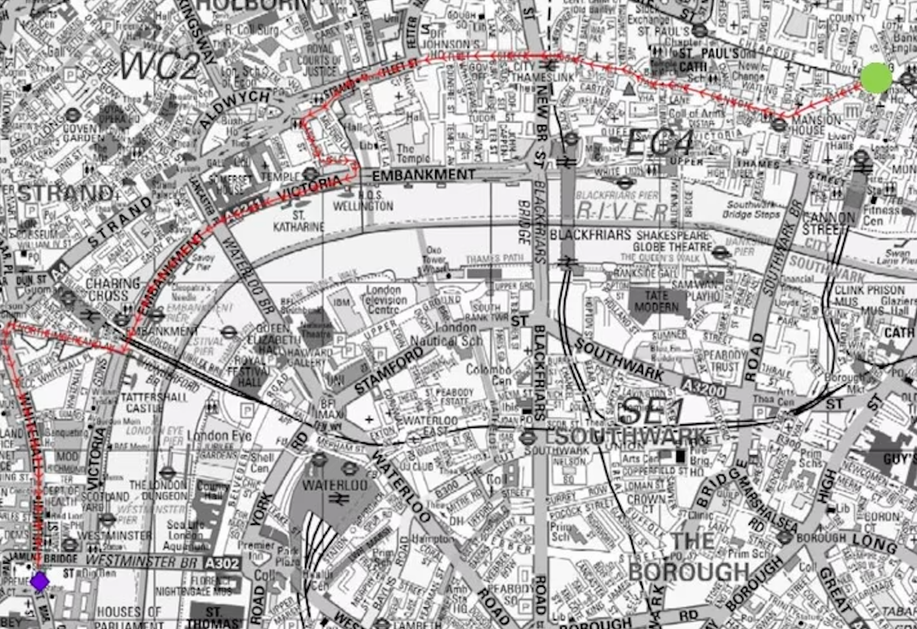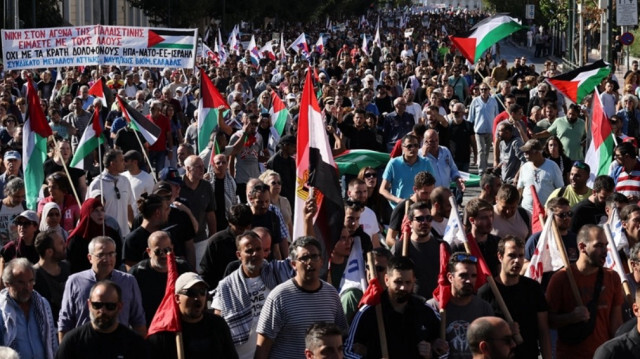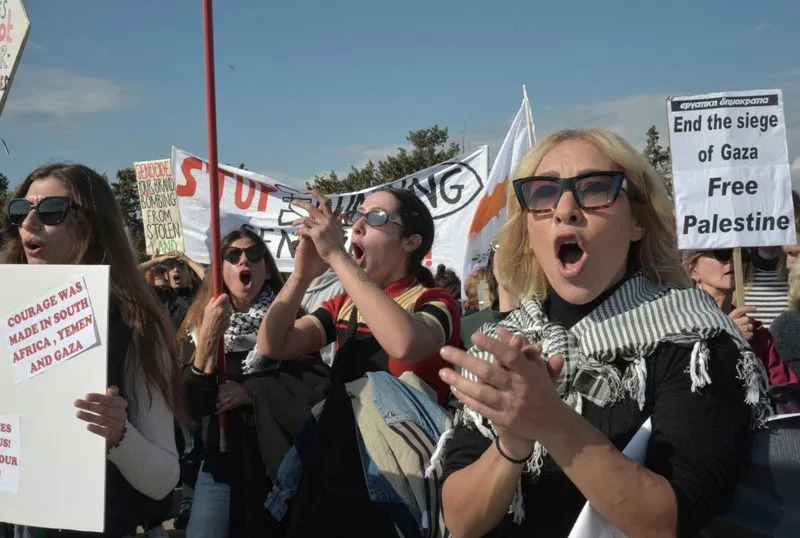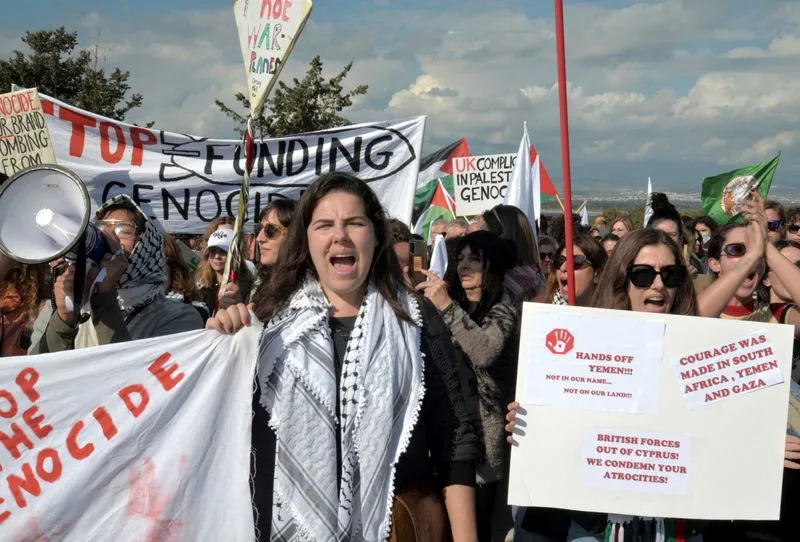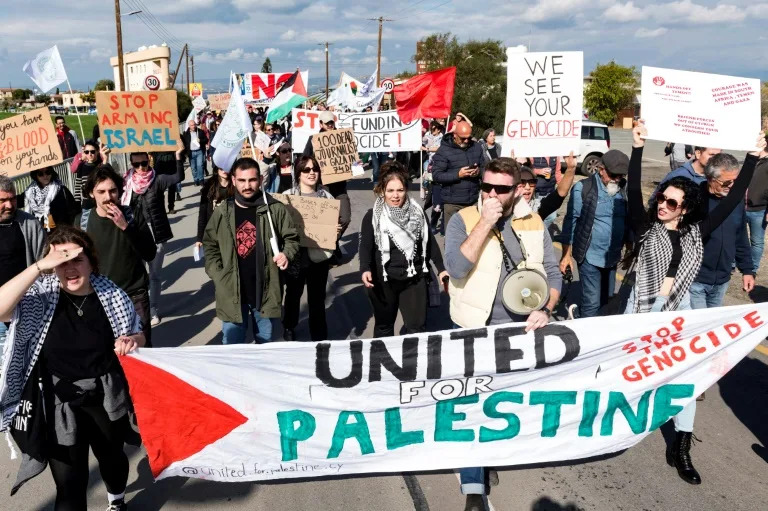January 13, 2024

Palestinians trying to carry on with their daily work even as the Israeli attacks continue, in Rafah, Gaza on January 09, 2024. [Abed Zagout – Anadolu Agency]
The UN Security Council said Friday that Palestinians in the Gaza Strip cannot be forcibly displaced and must be able to return to their homes, Anadolu Agency reports.
Amar Bendjama, permanent representative of Algeria to the UN, said what is happening in Gaza will remain a “disgrace.”
“A disgrace on the conscience of humanity,” he said at a Council meeting on the humanitarian situation in Israel and the Occupied Palestinian Territory.
The “barbaric” bombardment of Gaza and the destruction of its infrastructure and the targeting of all signs of life in Gaza clearly is making Gaza “uninhabitable,” said Bendjama.
“In addition, it seeks to kill the hope of returning home in the hearts and minds of the Palestinians in order to facilitate and implement the strategy of displacing the Palestinians outside their land,” he said, adding that it is a policy that enjoys a lot of support among the officials of the “occupying power.”
Bendjama said forced displacement of Palestinians must be rejected.
“Plan of forced displacement is unfolding now throughout the Palestinian territory, through bombardment and destruction, and through settlement and annexation,” he said. “Everyone must understand that there is no place for Palestinians except on their land.”
Bendjama also urged the international community, in particular the Security Council, to speak with one strong voice against the displacement of the Palestinians.
“No one inside this chamber can remain silent. As such plans unfold, silence is complicity,” he added.
READ: Gaza children still face unrelenting war: UN children’s agency
‘Gazans should not be subject to forcible displacement’
Linda Thomas-Greenfield, US envoy to the UN, said the situation is “heartbreaking and untenable.”
“The United States’ position has been clear and consistent: Palestinian civilians in Gaza must be able to return home as soon as conditions allow,” she said.
Washington has made it clear that civilians must not be pressed to leave Gaza under any circumstances, said the ambassador.
“We unequivocally reject statements by some Israeli ministers and lawmakers calling for a resettlement of Palestinians outside of Gaza. These statements, along with statements by Israeli officials calling for the mistreatment of Palestinian detainees or the destruction of Gaza, are irresponsible, inflammatory, and only make it harder to secure a lasting peace,” she added.
Permanent Representative of the UK to the UN, Barbara Woodward, said her country firmly rejects any proposal that Palestinians should be resettled outside Gaza, including proposals from the Israeli government.
“Our views and concerns are shared by our allies and partners that Gazans should not be subject to forcible displacement or relocation from Gaza,” said Woodward.
She encouraged Israel to immediately cease all settlement activities in Occupied Palestinian Territories.
READ: Israel’s defence: ‘Many civilian deaths in Gaza are caused by Hamas’
Israel ‘deliberately’ destroy everything
Also addressing the Council, Palestine’s UN envoy Riyad Mansour said in 100 days virtually every Palestinian in Gaza has been displaced multiple times.
“From a home to a UN shelter, to a tent. Searching for safety, everywhere. Finding safety nowhere. Searching for life anywhere, met by death everywhere,” said Mansour.
He said Israel has “deliberately” destroyed everything.
“Palestinians in Gaza today mourn their loved ones, and mourn their homes,” he said. “They mourn the Gaza Strip as all its landmarks have been destroyed. Every place people had happy memories in has been disfigured.
For his part, Israeli envoy to the UN Gilad Erdan, said this is the 21st Council meeting since Oct. 7, and not a single resolution has condemned Hamas for killing 1,300 Israelis and taking 240 hostages..
“Let me be very clear, there is no force displacement. As Israel’s Prime Minister (Benjamin Netanyahu) has said two days ago, Israel has no intention of displacing the population in Gaza.
“Israel is solely fighting Hamas terrorists, whose core strategy is to use guys and civilians as human shields, and who have converted every inch of Gaza to a terror war machine,” he said.
At least 23,708 Palestinians have since been killed, mostly women and children, and 60,050 injured, according to Palestinian health authorities.
According to the UN, 85% of the population of Gaza is already internally displaced amid acute shortages of food, clean water and medicine, while 60% of the enclave’s infrastructure is damaged or destroyed.
180 women give birth daily in Gaza amid Israeli restrictions, says Palestinian Red Crescent
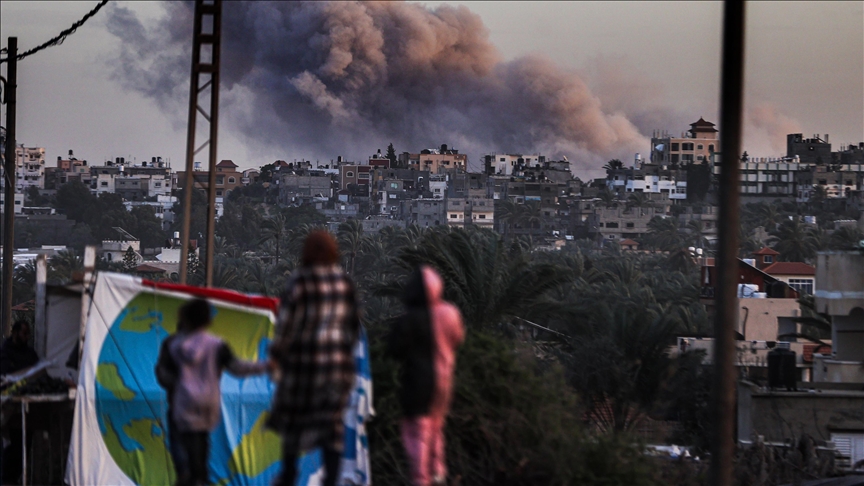
ANKARA
The Palestinian Red Crescent said Saturday that 180 women give birth every day in Gaza under "dangerous" and "inhumane" conditions due to Israeli attacks and occupation.
"In Gaza, 180 women give birth daily under dangerous and inhumane conditions. Many of them are unable to reach hospitals due to being in besieged areas, with the Israeli forces preventing ambulances from reaching them," it said in a statement.
To emphasize the severity of the situation, the humanitarian organization shared recordings on X.
The recordings documented telephone conversations between health teams and the family of a pregnant woman who could not reach a hospital in time to give birth in the Gaza Strip.
A Palestinian Red Crescent doctor guides and assists the family in the audio recordings, aiming to facilitate a safe home delivery for the woman who was in conversation with her sister.
UN Population Fund (UNFPA) Representative for Palestine, Dominic Allen, said in a virtual news conference Saturday from Jerusalem that 18,000 births occurred in Gaza in the last 100 days.
He noted that UNFPA could not provide sufficient supplies and the situation in hospitals is dire.
Allen highlighted that 5,500 women are expected to give birth in the coming months and he expressed concern for their struggles with water scarcity, food shortages and limited access to treatment.
He emphasized the deadly risks involved and underscored the urgency of preventing such tragedies.
-45,000 pregnant, 68,000 lactating women in Gaza face death
UNFPA announced Dec. 17, that 45,000 pregnant and 68,000 lactating women in Gaza are at risk of anemia, bleeding and even death.
Health Ministry spokesman in Gaza, Ashraf al-Qudra, said in a Jan. 1 statement that due to not meeting the needs of 50,000 pregnant women in centers accommodating those displaced by attacks in the Gaza Strip, patients are facing inadequate nutrition and health problems.
Al-Qudra urgently called on UN-affiliated agencies to intervene to rescue children and pregnant women from the situation.










